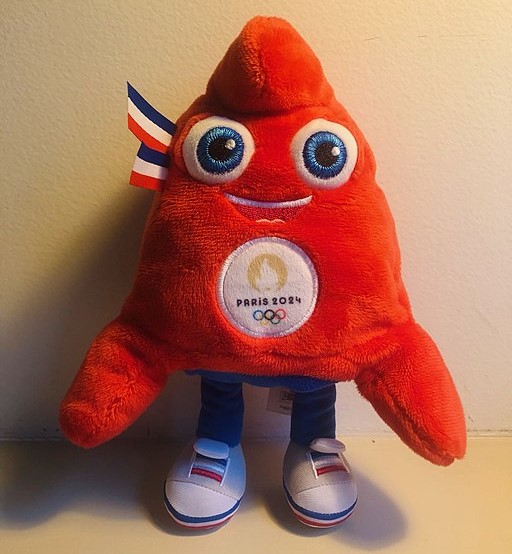Find out more about The Open University's Language courses and qualifications.
There is a long-standing tradition of making French a viable language of its own. Already in 1549, Joachim du Bellay wrote a treatise explaining, amongst other things, that translations from other languages should be curtailed because France didn’t need imports. Instead, French writers should focus on imitating foreign literature and writing in French to stretch and develop the national language. Over the years, this ideology, backed by political and military power, went a long way to help cement French cultural power in the world.
Centuries later, it would seem that French language policy has not changed all that much. Recent coverage of the 2024 Paris Olympics highlights that France doesn't just want to play a leading role in world sports, it also wants to use the global tournament as an opportunity to expand the reach and dominance of the French language by enriching its terminology and preventing French speakers from automatically resorting to English.
Expert panel
Realising that the introduction of several additional sports to the 2024 games would also mean the introduction of a number of new technical terms that have not yet found a French translation, the French Ministry of Culture together with the Ministry for Sport set up an expert panel to ensure that new French terms that can be used for the games (and beyond) are identified and defined. Alongside relevant ministry and Olympic committee officials, this expert panel will also include members of the Académie française, academics, and writers.
It is well-known that hosting the Olympics creates a sense of national pride. The French government views this event as a unique chance to expand the French language by identifying and defining new terms to add to French sports terminology. Although initially, hosting the Paris Games was viewed by the French organizing committee as a strong motivator to improve the English language skills of Parisians and young French citizens, the French government and other institutions whose role it is to defend ‘la langue de Molière’ had other ideas.
A political decision?
 The Olympic Phryge, mascot of Paris 2024, based on the hat worn as a symbol of freedom during the French Revolution.As the official language of the Olympics, it makes sense for
French to have its own vocabulary to refer to the manoeuvres and tricks of
breaking, sport climbing, skateboarding, and surfing. It will certainly be
helpful for francophone athletes, sports commentators, and the general public.
But beyond the cultural aim to enrich the French language, this decision also
resonates with the historical and politically-motivated positioning
of language as a central component of France’s international presence.
The Olympic Phryge, mascot of Paris 2024, based on the hat worn as a symbol of freedom during the French Revolution.As the official language of the Olympics, it makes sense for
French to have its own vocabulary to refer to the manoeuvres and tricks of
breaking, sport climbing, skateboarding, and surfing. It will certainly be
helpful for francophone athletes, sports commentators, and the general public.
But beyond the cultural aim to enrich the French language, this decision also
resonates with the historical and politically-motivated positioning
of language as a central component of France’s international presence.
Ever since the French Constitution officialised French as the only institutionalized language in the country, institutional monolingualism has prevailed. Communication between France and citizens of the former colonies has traditionally taken place through the national language, helping to secure its status and dominance. This language policy is still embraced by many institutions, including the International Organisation of La Francophonie (OIF) whose mission it is to promote the French language amongst its 88 member countries, amongst other goals.
Protecting French therefore continues to be an important goal for politicians who are determined to stem the flow of English borrowings that are seen to be slowly encroaching into French. Take for example the recent controversy over the Paris 2024 Olympic bid slogan ‘Made for Sharing’. The organizing committee was taken to court over the strapline. Although a French version of the slogan (‘Venez partager’) was later provided, French officials disapproved of the decision to give priority to the English language to promote the Paris Olympic bid. They criticised the slogan, saying it was more suitable for a pizza promotional campaign.
Diversifying French
This decision by the government to create new French terms, however, could be viewed as an opportunity to diversify, rather than conserve, the French language. After all, defenders of French argue that their role is not to exclude or forbid foreign words in a purist way, but rather to help define what constitutes French and contribute to its vitality. Despite a history of careful language planning, over time French has become a highly creative and adaptable language, incorporating a range of new words, notably from the Francophone world. For example, a recent addition to the Petit Larousse dictionary is the Cameroonian import ‘faroter’, meaning to bribe someone to obtain a job.
In December 2022, the French Ministry of Culture published a first report containing 10 new terms to refer to the dancing sport known as breaking, or ‘break’ in French. This borrowed term to refer to the new sport highlights the fact that English is sometimes accepted by French language policy experts, particularly if already in use amongst aficionados. In the area of surfing, the culturally-adapted term ‘coeur’ will be used to refer to the section of the wave that you see when it begins to curl over.
By opting for a combination of creations, translations, and borrowings, the so-called French language police is showing a more open, modern, and flexible attitude to its language policy than in the past, one that is more reflective of its multilingual, complex, and diverse identity.
banner.jpg)



Rate and Review
Rate this article
Review this article
Log into OpenLearn to leave reviews and join in the conversation.
Article reviews